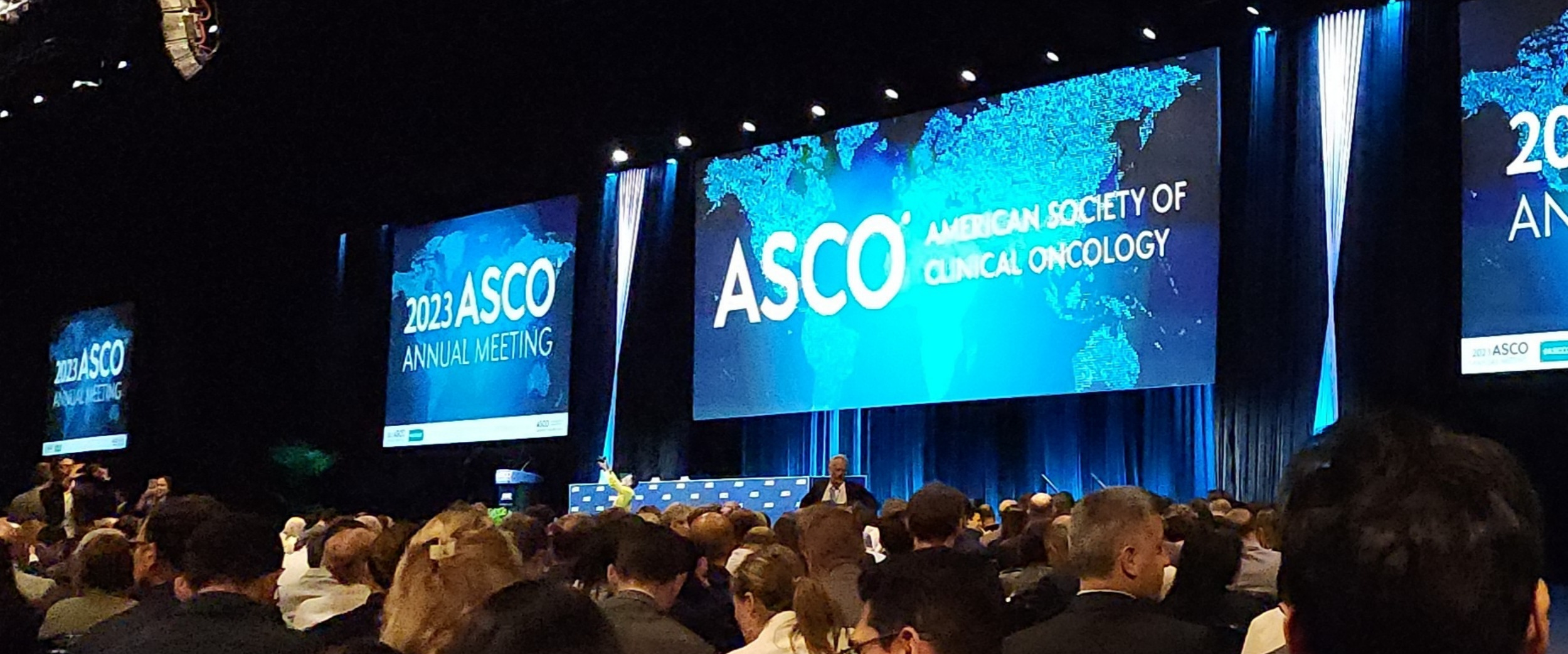The 2023 American Society of Clinical Oncology (ASCO) annual meeting was held from June 2 to 6. CBCN was pleased to be able to attend and participate in the many interesting and groundbreaking research that was shared at ASCO this year. Below, we present a few highlights and takeaways from this year’s conference.
A second CDK4/6 inhibitor may soon be available for early-stage HR-positive, HER2-negative breast cancer.
Results from the phase III NATALEE clinical trial demonstrated that the addition of the targeted therapy drug ribociclib (Kisqali) to hormone therapy for early-stage HR-positive, HER2-negative breast cancer reduced the risk of recurrence by up to 25%. While not yet approved for treatment of early-stage breast cancer, Kisqali may soon join Verzenio as an option of treatment for this patient population.
Results from the TROPICS-2 phase III clinical study indicated an overall survival benefit when using sacituzumab govitecan-hziy compared to physician’s choice treatments.
Patients with pretreated, endocrine therapy–resistant, hormone receptor–positive, HER2-negative metastatic breast cancer demonstrated overall higher rates of survival at 12-, 18-, and 24-months follow-up time. Improvements were independent of HER2-low status, supporting evidence that sacituzumab govitecan could be an alternative treatment for that patient population with limited treatment options.
Want to get the most out of Tamoxifen? Take it before bedtime.
A study revealed that switching your medication time from morning to night seemed to improve disease-free survival outcomes for Tamoxifen, but had no effect on aromatase inhibitors.
Ovarian suppression benefitted premenopausal women not taking chemotherapy by reducing deaths from breast cancer by up to 30%.
A meta-analysis of studies from 1948 to 2009 examined the effectiveness of ovarian suppression or ablation in premenopausal women with ER-positive breast cancer, or a risk of breast cancer recurrence. Ovarian suppression lowers or stops estrogen production. Women on no chemotherapy regimen saw a marked improvement in survival rates over women who were taking Tamoxifen.
Study combining zotatifin (eFT226) plus abemaciclib (Verzenio) and fulvestrant (Faslodex) demonstrated no dose-limiting toxicity levels.
This drug combination in women with ER–positive metastatic breast cancer proved to be very tolerable, with little side effects. The addition of zotatifin also yielded promising results in possibly targeting other oncogenes, which may aid patients who are resistant to multiple chemotherapy mechanisms.
A phase II clinical trial showed support for the use of patritumab deruxtecan as a treatment option for HER2-negative metastatic breast cancer.
A little over a third (35%) of participants in this clinical trial saw improvement. The treatment proved beneficial for 43% of the participants, where the cancer improved or remained stable. Data suggested that the cancer doesn’t need to be HER3-positive to benefit from the drug, as results varied by HER3 activity.
The SONIA clinical trial compared two treatment approaches for using a CDK 4/6 inhibitor with and without anti-estrogen therapy as a first- or second-line treatment.
The study examined using a CDK 4/6 inhibitor–along with anti-estrogen therapy as a first-line treatment compared to using the CDK 4/6 inhibitor in the second line and starting with anti-estrogen therapy alone. Participants were HR-positive, HER2-negative metastatic or advanced breast cancer patients. Results indicated no differences in cancer outcomes, survival, or quality of life.
Diclofenac, a topical gel, prevents hand-foot syndrome side effects of chemotherapy drug capecitabine.
In this phase III clinical trial, diclofenac, an over-the-counter anti-inflammatory used mainly for arthritis, reduced the risk of developing grade 2 or 3 hand-foot syndrome by up to 75% in participants taking capecitabine for cancer.









